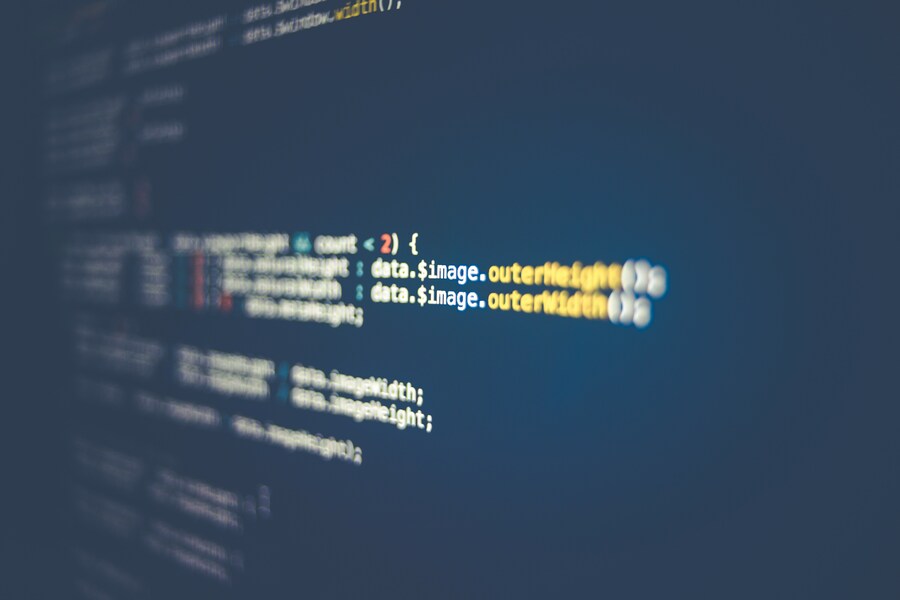What is AI Encode Assistant?
An AI encode assistant is a smart tool. It uses AI tools to help developers write and manage code. Unlike traditional texteditors, you must manually input each line of syntax. These assistants use context to predict your next need. They analyze patterns from existing encode, learning as they go. This lets them suggest changes and even auto-complete code in real-time. Its like having an expert partner at your side. They know coding languages inside out. AI assistants arent just about speed; they also enhance accuracy.
They catch potential errors before you run your program. This helps reduce bugs and improve software quality. As technology advances, these tools are becoming essential for coders. They are now vital across platforms and languages.
Understanding the concept of AI-powered code assistants
AI-powered encode assistants are transforming how developers approach coding tasks. These tools use machinelearning and naturallanguage processing. They understand programming languages and their context. AI assistants can adapt to various coding styles.
Unliketraditionaleditors, they rely on fixed syntax rules. They learn from vast datasets of code. This lets them give relevant, tailored suggestions to developers. This technology offers more than just auto-completion features.
It analyzes your work, predicting what you might need next. It also highlights potential errors before they become problems. These assistants have a user-friendly interface. They aim to boost creativity and cut dull tasks. This shift empowers seasoned developers and supports beginners with tough problems.
Differentiating between traditional code editors and AI encode assistants
Traditionalencodeeditors focus primarily on providing a platform for writing and editing code. They come with features like syntaxhighlighting, error detection, and debugging tools. They require significant manual input and expertise from the coder. The question is React front end or backend highlights the growing impact of AI on modern development, as it can help developers understand frameworks and make informed choices.
AI encode assistants take it a step further by leveraging machine learning algorithms to understand context. They can predict what developers want to write next or suggest entire blocks of code based on previous inputs.
Traditional editors support coding tasks. But, AI tools provide real-time help. This boosts creativity and efficiency. This lets developers focus on problem-solving, not on repetitive coding tasks. AI helpers learn from user behavior. They adapt over time. Traditional editors do not. They stay static unless updated manually. These advanced technologies mark a shift in how developers code. For instance, extensions like "IntelliCode" for Visual Studio Code leverage AI to predict the next code snippet, saving developers time and effort.

How do AI Code Assistants Work?
AI encode assistants use advanced machine learning algorithms. They are trained on vast datasets of existing code. They analyze patterns in these datasets. Then, they generate coding suggestions tailored to your context. When you type a line of encode or a comment, the AI helpers uses natural language processing to figure out your intent. This allows it to predict what you might need next based on the surrounding code and previous inputs. These tools learn from user interactions. They adapt their suggestions as they gather more data.
This feedback loop boosts accuracy and relevance. So, it makes them better at simplifying complex coding tasks. Many AI helpers integrate seamlessly with popular development environments. This integration ensures help is available without interrupting your workflow.
Exploring the technology behind AI code assistants
AI encode assistants leverage advanced machine learning algorithms to understand and generate code. These systems are trained on vast datasets, including public repositories and documentation. This extensive training enables them to recognize patterns in coding languages.
Natural language processing plays a crucial role as well. It lets users talk to the assistant in plain English. This makes coding easier for everyone. The AI turns user queries into code snippets or suggestions. For example, by simply asking "generate a function that calculates the factorial of a number," the AI could generate the necessary python code for you.
These tools utilize deep learning techniques to refine their accuracy over time. As they interact with developers, they learn from corrections and preferences. This helps them improve over time. The architecture often includes neural networks that mimic human cognitive processes. This design predicts what the developer might need next. It uses context and past interactions.
Benefits of using AI for coding assistance
AI encoding assistants bring a multitude of advantages to developers. One significant benefit is the boost in productivity. These tools automate repetitive tasks. They let programmers focus on harder challenges. Another key advantage is enhanced learning opportunities.
| Benefit | Description |
|---|---|
| Increased Productivity | AI tools provide real-time encode suggestions, reducing the time spent on writing repetitive code and allowing developers to focus on more complex tasks. |
| Error Reduction | AI can identify and suggest corrections for potential errors and bugs in the code, improving code quality and reducing debugging time. |
| Faster Learning Curve | New developers can benefit from AI-generated code suggestions, learning practices and syntax through real-time examples and instant feedback. |
| Consistent Coding Standards | AI helps maintain consistent coding standards across a team by providing uniform encode suggestions based on predefined styles or industry standards. |
Beginners can get instant feedback and tips. This helps them improve as they work on coding exercises or projects. AI encode assistants reduce the likelihood of bugs. These tools analyze syntax and logic in real-time. They catch errors before they become bigger issues.
Collaboration becomes easier too. Team members can share AI-generated insights. This can lead to better solutions and new ideas in project discussions. AI boosts creativity by suggesting newapproaches and codestructures. These may not have been considered at first. This opens up new avenues for exploration in software development.
Common features of AI-powered code assistants
AI-powered encode assistants have many features to improve coding. A key feature is intelligent code completion. It predicts and suggests the next lines of encode as you type. This not only speeds up development but also reduces syntax errors.
Another important aspect is contextual understanding. These tools analyze the surrounding code. They provide relevant suggestions for your project. This means less time spent searching for documentation or example snippets.
Many powerful AI helpers offer real-time debugging support. They can spot issues in your code and suggest fixes. This transforms how developers solve problems. Collaboration features are nowcommon. They let teams share insights and recommendations within their workflows. AI-driven code tools can empower developers. They reduce repetitive tasks and boost creativity. The debate over the *best llm for coding* is ongoing as the field rapidly evolves, with new advancements and improvements emerging constantly.

Top AI Tools for Code Generation
AI encoding tools are evolving fast. They are innovating developers everywhere. Among the standout names is GitHub Copilot. It utilizes OpenAIstechnology to provide contextual encode suggestions as you type. Next is TabNine. It uses deep learning models trained on vast amounts of open-source code. This tool is great at predicting your next line of encode. Many programmers love it for that. ReplitsGhostwriter deserves mention too. It offers smart completions. It can even write entire functions based on user prompts. The blend of natural language processing and coding makes it quite versatile.
Codex by OpenAI enables complex interactions. It translates plain English requests into code snippets in various programming languages. Each tool brings something unique to the table, enhancing productivity in different ways. By analyzing vast amounts of source code, Codex learns patterns and best practices, allowing it to generate code that is not only functional but also efficient and well-structured.
Review of popular AI coding tools like GitHub Copilot and TabNine
GitHub Copilot has made waves in the coding community since its launch. It uses OpenAIs powerful language model to suggest code based on context. Developers have praised it for improving productivity, especially when working with repetitive tasks.
TabNine, on the other hand, offers a different approach. Its designed to learn from your personal coding habits and preferences. The AI adapts to your style over time. It will then give you better, more relevant suggestions. They will be tailored for you.
Both tools work well with popular code editors, like VS Code and JetBrainsIDEs. This compatibility makes them accessible regardless of your preferred environment. GitHub Copilot quickly generates new code snippets. TabNine, though, is better at enhancing existing ones. Their unique strengths cater to all developer needs. They suit you whether you want to rapidly prototype or fine-tune existing projects.
Comparison of functionalities offered by different best AI-based coding assistants
When exploring AI assistants, functionality varies widely among the top tools. GitHub Copilot excels in context-aware encode suggestions. It uses vast datasets to understand your intent and deliver relevant snippets.
TabNine, on the other hand, uses deep learning. It predicts what you might need next. Its predictions can be fine-tuned based on your coding style over time. Kite stands out for its docs integration. It gives you instant access to helpful resources while you code. This feature enhances understanding and reduces time spent searching for information elsewhere.
Replit adds a twist to coding help. It lets multiple users connect in real-time. This feature is excellent for team projects or pair programming sessions. Each tool has unique strengths. They suit different coding environments and user preferences. So, developers must choose one that meets their needs. These AI tools empower developers to write better code faster, and ultimately, make the development process more enjoyable.
Enhancing Coding Experience with AI
AI encoding aids transform the way developers approach their tasks. With intelligent suggestions and context-aware recommendations, these tools streamline the coding process. Imagine writing a few lines of encode. An AI helper nudges you with suggestions for improvements. This interactivity enhances creativity while reducing time spent on debugging. Developers can integrate AI tools into existing workflows seamlessly. A lightweight plugin for your favorite editor or a full platform can help. Getting started is easier than ever. The learning curve shrinks as beginners get feedback in real time. Experienced coders can access advanced features with a click.
AI improves productivity in software development. It does this by merging human intuition with machine precision. The result? More efficient coding sessions that focus on innovation rather than routine errors.
Improving efficiency and productivity with AI coding aids
AI encoding aids transform the way developers approach their tasks. These tools suggest context-aware ideas. They help programmers high-quality code faster and with fewer errors.
Imagine having a virtual assistant that understands your coding style. It learns from your previous work and adapts to provide tailored recommendations. This personalized touch minimizes the time spent searching for syntax or functions. AI helpers streamline debugging processes. Instead of manually tracing errors, developers can use a code analysis tool powered by AI to identify potential issues and suggest solutions.
They can identify issues in real-time, helping developers fix problems before they escalate. This proactive approach enhances overall project timelines. Collaboration also benefits significantly from AI integration. Teams can share insights and solutions instantly. This improves communication and cuts misunderstandings in development. By using a generative ai model, developers can focus on the creative aspects of coding, while AI handles the mundane and repetitive tasks.
Integrating best AI tools seamlessly into the coding workflow
Integrating AI tools into your coding workflow can transform how you develop software. Choose tools that fit your processes. They should improve them, not disrupt them. Choose an AI encode assistant that fits your development environment.
Many popular IDEs support plugins, allowing for easy installation and use. Once integrated, customize the tools settings to match your coding style. This ensures that suggestions are relevant and tailored to your needs.
Dont forget about collaboration features. Some AI helpers let team members share suggestions in real time. This boosts productivity. Regularly assess how these tools impact your workflow. They should adjust their integration based on feedback. This will maximize efficiency and minimize friction in development.
Benefits of Using Best AI Code Generators
AI encode generators streamline coding tasks, making them faster and more efficient. These tools analyze code patterns. They suggest ways to save time on repetitive tasks. With AI assistance, developers can enhance their code quality significantly. The algorithms ensure adherence to best practices and reduce the likelihood of bugs. This support lets programmers focus on solving problems, not syntax. Also, AI-generated snippets improve accuracy. They offer real-time, custom solutions for specific programming languages or frameworks.
As coders gain access to instant feedback, they can refine their skills over time. The collaborative nature of these tools fosters a learning environment. Developers at all levels benefit from quick insights and suggestions. They help improve their coding skills with little effort.
How AI enhances code completion and generation processes
AI code completion tool by analyzingvastamounts of code and identifying patterns. It can predict a programmers next code, streamlining the process. As developers in writing, AI can suggest entire lines or blocks of encode based on context. It speeds up development and reduces errors from manual input.
AI tools learn from user behavior over time. The more you use them, the better code they get. They will then offer relevant suggestions that match your coding style. This AI boosts creativity. It lets programmers focus on problem-solving, not syntax. AI reduces cognitive load. It empowers coders to innovate without routine tasks holding them back.
Increasing code quality and accuracy with AI-powered tools
AI-powered tools offer a fresh perspective on encode quality. They analyze existing code patterns and learn from vast datasets. This ensures their suggestions are bothrelevant and bestpractice. These tools check syntax and meaning. They catch errors early in development. This proactive approach minimizes bugs before they escalate, saving developers time and frustration.
AI helpers enhance coding accuracy by providing context-aware recommendations. Instead of generic solutions, they tailor their suggestions to your projects state. This precision helps maintain consistency across largecodebases. For instance, when working with javascript, an ArtificialIntelligenceassistant can help ensure propersyntax, prevent common errors, and even suggest improvements to code structure, making development more efficient.
Developers can trust these advanced systems. They will meet security standards and optimize performance for billions of lines of code. AI-powered code completion is transforming how programmers view QA in their projects.
AI in Real-Time Code Assistance
AI technology has transformed the coding landscape, particularly in real-time encode assistance. Imagine typing on a project. An assistant instantly suggests improvements. These tools analyze your code as you write. They offer suggestions tailored to your needs. They can highlight potential errors before they become problems, making debugging a breeze. Real-time support empowers developers by providing instant feedback. It sparks creativity and enables rapid prototyping. It avoids syntax issues and logic errors. AI assistants often come equipped with contextual explanations.
Suggestions usually come with explanations. Theyre perfect for those eager to learn on the go. With such tools, coding is less scary and more efficient. The future of programming is here. It blends human creativity with machine learning to improve every line of code. AI assistants excel at debugging and code explanation, providing insights and solutions that can be difficult for humans to find.
Real-time encode suggestions and explanations with AI technology
AI technique has transformed the way developers write code. A standout feature is real-time encode suggestions. They provide instant feedback as you type. This immediate assistance helps streamlinethecodingprocess and minimizes errors. Imagine writing a function.
Then, you get suggestions for syntax fixes or better methods. It feels like having an experienced mentor by your side at all times. These AI tools dont just stop at suggesting code. They offer explanations too, breaking down complex concepts into digestibleparts. This helps both beginners and pros to improve their skills as they work. This is especially useful when generating boilerplate code for common tasks, as the AI can handle the repetitive parts while you focus on the unique logic.
Using this smart support in daily tasks can boost productivity. It can also cut debugging time. The seamless interaction between coder and AI lets creativity thrive. It avoids the frustration of coding challenges. Provide code is one of the ways AI assistants enhance the coding process. The question is Next js frontend or backend illustrates the blurring lines between traditional front-end and back-end development, a trend further fueled by the capabilities of AI tools.The impact of AI on providing instant coding support
AIs coding presence transforms developers workflow from the ground up. Instant coding support is now a reality. AI encode assistants use advanced algorithms and machine learning to provide it. These tools analyze your code in real-time. They offer suggestions that can save you time. Imagine writing complex functions. AI assistants can help you with various tasks including code generation, documentation, and testing.
You get instant feedback on any syntax or logicerrors. This responsiveness leads to smoother workflows. It cuts frustration in debugging. Developers should spend less time on minor mistakes. They can then focus on creating innovative solutions. These AI-powered systems adapt over time, learning from individual coding habits and preferences. This personalization makes them more effective and valuable as you use them. Contextual help, delivered instantly, transforms programming environments into creative, dynamic spaces.
This technology fosters collaboration among teams. These smart tools create a shared understanding. So, code discussions become richer and more productive. Everyone can contribute without being hindered by knowledge gaps or misinterpretations. As we move into a more digital world, AI will have a greater impact on instant coding support. Embracing this change gives developers powerful tools. It also opens the door to innovation in all areas of software development.

